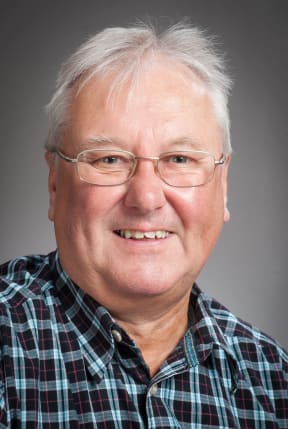New research shows many medications and treatments may not work as effectively for Māori and Pasifika as they do for people of European descent.

Dr Geoffrey K. Chambers Photo: Supplied
Geoff Chambers, a molecular geneticist at Victoria University, says genes linked to the immune systems of Māori and Pasifika are very different to those of Europeans.
Dr Chambers said his findings partly explained why some auto-immune diseases were unheard of among Māori, while others such as type-two diabetes were more common.
"It goes some way to explaining why some autoimmune diseases that are relatively common in people of European descent, such as multiple sclerosis, are virtually unheard of among Māori and Pasifika," he said.
He said that was also why it was more common for Māori and Pasifika people to get diseases such as type-2 diabetes.
"The first thing is to raise awareness that these differences exist and that we need to look out for them. It also helps to plan recruitment strategies for blood donors and bone marrow donors and it helps to explain and identify which people are most at risk."
Dr Chambers said it had implications for donors as it would help improve the number of successful matches and transplants.
"If you're going to have a bone marrow transplant it's very important that you have very good tissue matching between donor and recipient. The better it is, the more likely it is to be successful," he said.
"There are large numbers of Māori and Pacific people who need these transplants, but there are relatively small numbers to date of Māori and Pacific donors for all sorts of reasons. And one of the things that we've learned is that you really need to have lots of Māori and Pacific donors.
"Because of the differences between the immune systems you're far less likely to get the compatible transplant from a European donor."
He said it was important that organisations like the bone marrow registry know that the immune systems are different to improve outcomes.
But Dr Chambers also said the findings highlight a gap in medical developments in New Zealand.
"Many new drugs have been developed by Europeans for Europeans, but if we are to deliver these advances effectively to Māori and Pasifika people, then we need new information, which we must uncover ourselves.
"This requires knowing something about their genetic make-up.
"We need to keep an eye on ethnicity when we're dispensing medicines and just making sure that they're working as they're supposed to. And we've got to go into bat for ourselves on this as the world of research medicine is not going to do it for us."
He predicted that in future that type of information and genetics would play an important role in people's everyday treatment.
"Ten years in the future maybe where people will be able to get genetic profiles for themselves as individuals and their doctors, will have that on their computers in the surgeries," Dr Chambers said.
He said medical professionals will be able to make a decision on medication by looking at those individual profiles.
"People are already thinking about this particularly for cancer chemotherapy. Trying to pin in what's called 'personalised medicine', trying to give people the right drugs for their tumour, and ones that they're likely to tolerate and will work well. So the door's open, and it's full steam ahead really."

